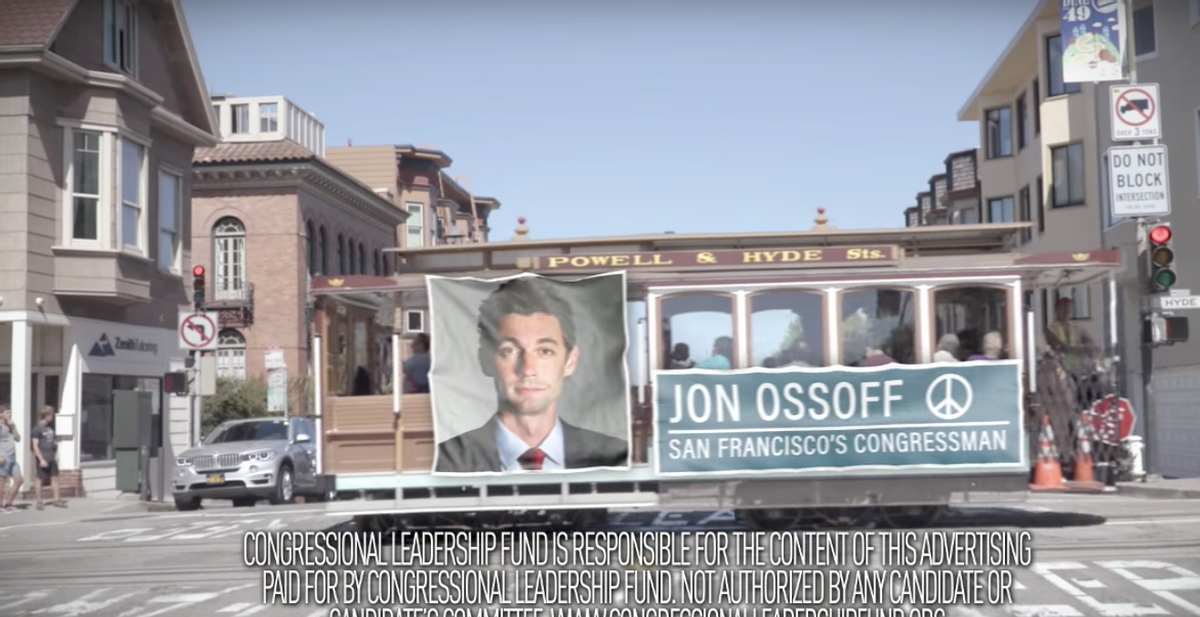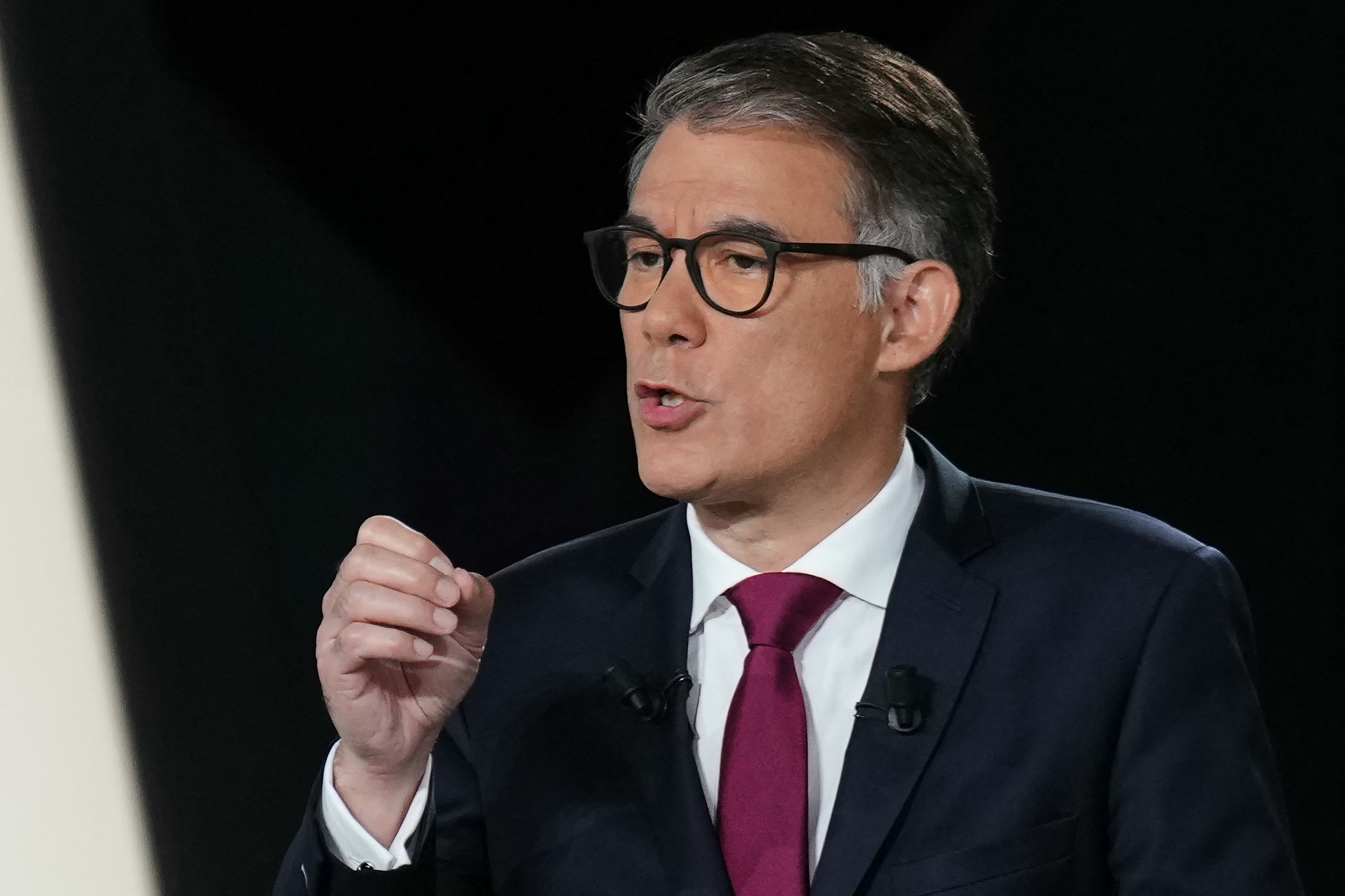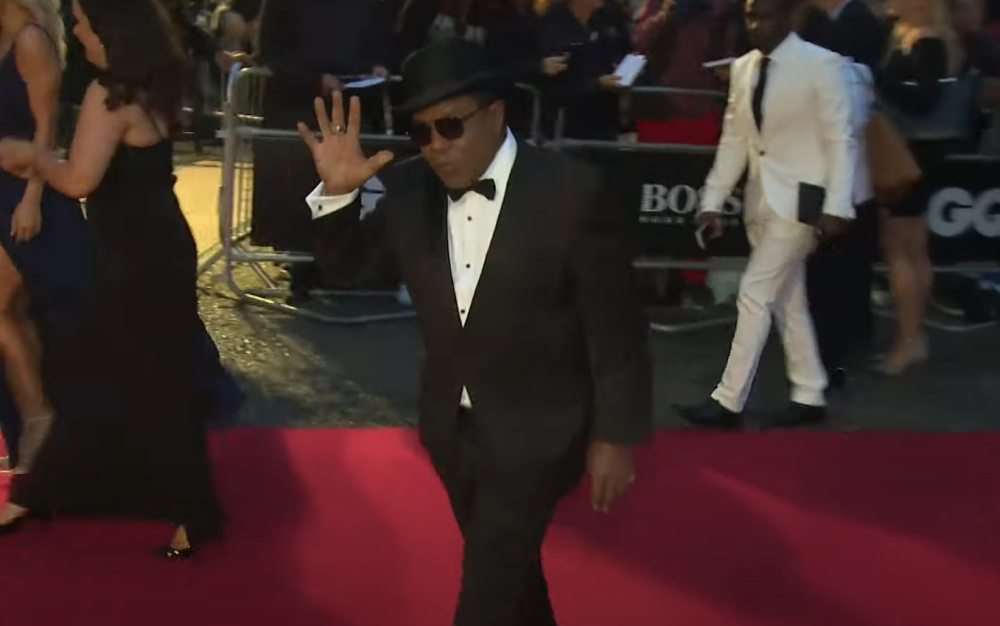The "The Rehearsal" Backlash: Exploring Nathan Fielder's Portrayal Of Paramount As Nazis

Table of Contents
Analyzing the Scene: Paramount's Portrayal and its Interpretations
The Specific Scene & its Context
The controversial scene unfolds during a meticulously crafted rehearsal in "The Rehearsal." Fielder, playing himself, is creating a simulated scenario involving a complex personal relationship. Within this elaborate simulation, a meticulously detailed representation of a Paramount Pictures office appears. The key elements that fueled the controversy include:
- Visual Elements: The Paramount office is stylized with stark, imposing architecture and an almost militaristic aesthetic.
- Dialogue: Specific dialogue, while not explicitly referencing Nazis, hints at a rigid, inflexible, and controlling corporate structure.
- Actions: The simulated actions within the Paramount office setting, though fictional, contributed to the sense of oppressive control and manipulation perceived by many viewers.
Interpretations and Arguments
Interpretations of this scene vary widely. Some viewers saw a clear and intentional parallel between the depicted corporate environment and the oppressive regime of Nazi Germany. Others viewed it as a darkly comedic exaggeration, a satirical commentary on corporate power structures. Still others argued it was simply a meticulously crafted fictional setting for the show's premise.
- Parallel to Nazi Germany: Many online commentators pointed to the visual and thematic similarities, arguing the scene deliberately evoked imagery associated with Nazi propaganda and control.
- Satire and Hyperbole: Others defended Fielder's artistic license, suggesting the scene was meant to be a satirical exaggeration of corporate control, not a direct comparison to Nazism.
- Misinterpretation: Some argued the scene was simply a fictional setting with no intentional political subtext; the controversy, they claimed, stemmed from misinterpretation by viewers.
Artistic Intent vs. Audience Interpretation
Deciphering Fielder's intent is crucial. Was the parallel to Nazi Germany intentional? Given Fielder's known penchant for pushing boundaries and exploring uncomfortable truths through dark humor and meticulous detail, it's difficult to definitively say.
- Intentional Parallel: The deliberate nature of Fielder’s creations suggests a potential intention to provoke discussion on power structures and control, even if the comparison to Nazism is indirect.
- Unintentional Parallel: Conversely, the scene might be an example of how meticulously crafted satire can be misinterpreted, highlighting the potential for unintended consequences in artistic expression. The line between satire and offense can be incredibly thin.
The Backlash: Public Reaction and Critical Analysis
Social Media Response
The "Paramount scene" ignited a firestorm on social media platforms like Twitter and Reddit. The reaction was highly polarized, with intense debates and strong opinions flooding the platforms.
- Outrage and Condemnation: Many expressed outrage and condemnation, arguing the scene was insensitive and trivialized historical atrocities.
- Defense and Justification: Others defended Fielder's artistic freedom, claiming the reaction was overly sensitive and missed the satirical intent.
- Neutral Analysis: Several commentators took a more measured approach, analyzing the scene's visual elements and dialogue to unpack its potential meanings.
Critical Reviews and Articles
Professional critics offered varying interpretations, reflecting the complexities of the controversy. Some criticized Fielder for potentially insensitive comparisons, while others praised the scene's boldness and satirical edge.
- Negative Reviews: Some reviews highlighted the potential for the scene to be hurtful and offensive, questioning the appropriateness of using such imagery.
- Positive Reviews: Other reviews viewed the scene as a powerful commentary on corporate power dynamics, noting its unsettling effectiveness.
- Balanced Reviews: Many reviews attempted to analyze the scene within the context of the show's overall themes and Fielder's artistic style.
Paramount's Response (if any)
To date, Paramount has not issued a public statement regarding the controversy. This silence could stem from several factors: a desire to avoid escalating the situation, a belief that engaging with the controversy would only amplify it, or perhaps a recognition that the scene is, ultimately, fictional.
The Broader Implications: Satire, Hyperbole, and the Limits of Artistic Expression
The Nature of Satire and Dark Humor
"The Rehearsal" employs satire and dark humor extensively. This stylistic choice contributes to both the show’s appeal and its capacity to provoke controversy.
- Effective Satire: When successful, satire can be a potent tool for social commentary, exposing uncomfortable truths through exaggeration and irony.
- Risks of Dark Humor: However, the use of dark humor carries inherent risks. The line between clever social critique and offensive insensitivity is subjective and easily crossed.
The Line Between Criticism and Offense
The "Paramount scene" highlights the intricate relationship between artistic expression, social commentary, and potential offense. The power dynamics at play, particularly the representation of a powerful corporation, further complicate the situation.
- Artistic Freedom vs. Social Responsibility: The debate centers around balancing the artist's freedom of expression with the potential harm caused by insensitive or offensive representations.
- Context and Intent: Understanding the context and artist's intent is crucial in judging the ethical considerations of a particular piece of art.
Conclusion: Understanding the "The Rehearsal" Controversy – A Deeper Dive into Nathan Fielder's Paramount Portrayal
The controversy surrounding Nathan Fielder's portrayal of Paramount in "The Rehearsal" illustrates the complexities of satire, artistic interpretation, and audience response. The scene itself, its diverse interpretations, the ensuing backlash, and the broader discussion around the limits of artistic expression all contribute to a multifaceted debate. It underscores the importance of engaging with multiple perspectives, recognizing the potential for misinterpretations, and considering the ethical implications of using potentially sensitive imagery within a satirical context.
We encourage you to share your own thoughts on the "Paramount scene" and engage in respectful discussion about the ethical considerations of satire and artistic license in "The Rehearsal," and the impact of Nathan Fielder's portrayal. Let's continue the conversation about this complex and thought-provoking controversy surrounding “The Rehearsal” and its depiction of Paramount.

Featured Posts
-
 Jon Ossoffs 2026 Campaign Targeting Gop Healthcare Cuts
May 27, 2025
Jon Ossoffs 2026 Campaign Targeting Gop Healthcare Cuts
May 27, 2025 -
 Congres Ps Trois Courants S Unissent Contre Olivier Faure
May 27, 2025
Congres Ps Trois Courants S Unissent Contre Olivier Faure
May 27, 2025 -
 Rekap Penyelamatan Damkar Bandar Lampung 334 Kasus Non Kebakaran 2025
May 27, 2025
Rekap Penyelamatan Damkar Bandar Lampung 334 Kasus Non Kebakaran 2025
May 27, 2025 -
 Amas 2024 I Tzanet Tzakson Epistrefei
May 27, 2025
Amas 2024 I Tzanet Tzakson Epistrefei
May 27, 2025 -
 Krrish 4 Plot Leak Rumors Nora Fatehi And Preity Zinta Joining Hrithik Roshan
May 27, 2025
Krrish 4 Plot Leak Rumors Nora Fatehi And Preity Zinta Joining Hrithik Roshan
May 27, 2025
